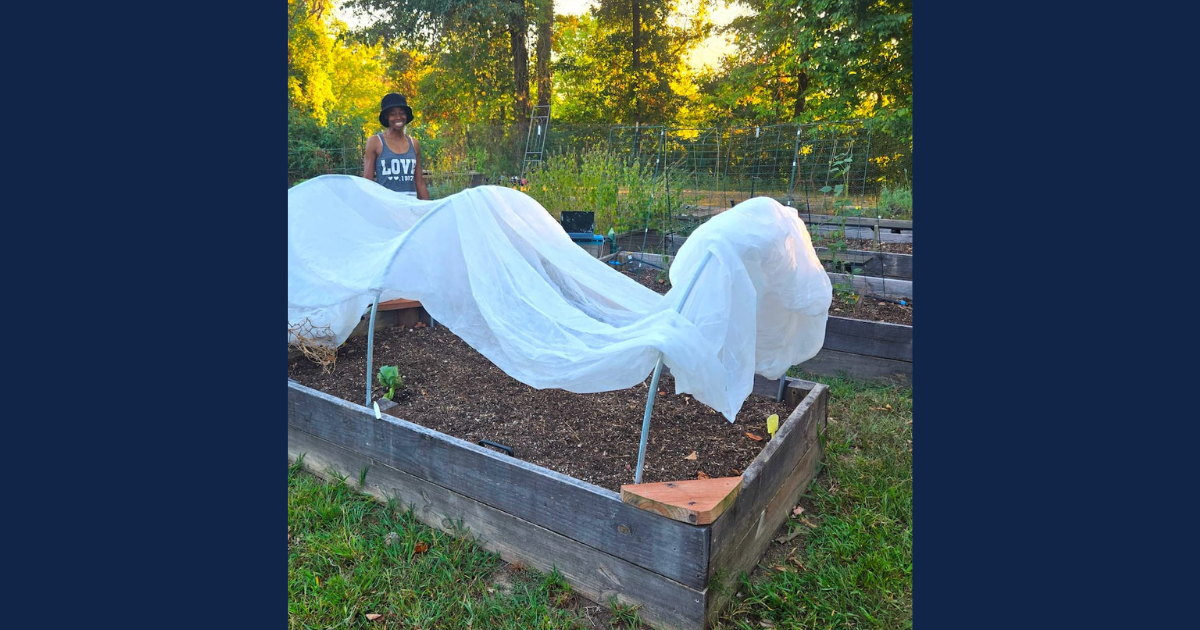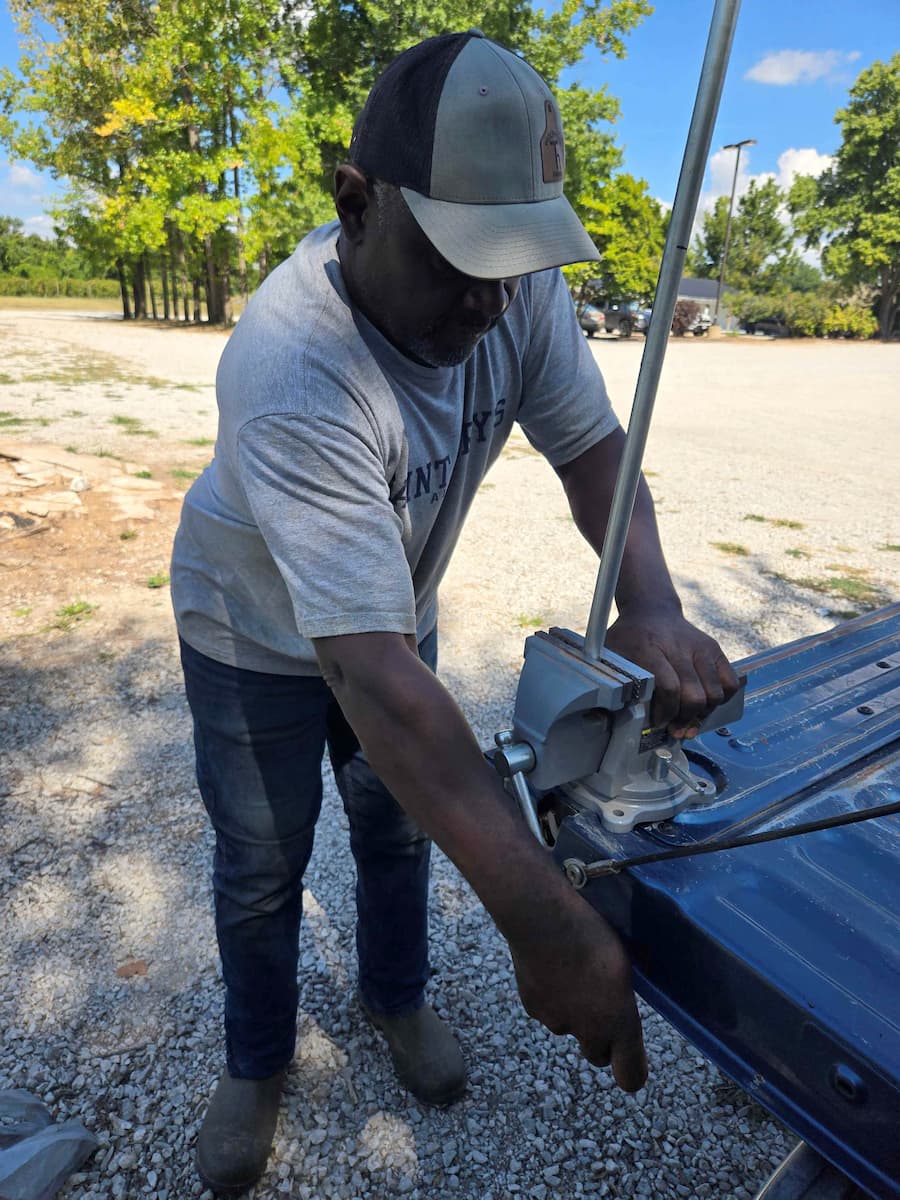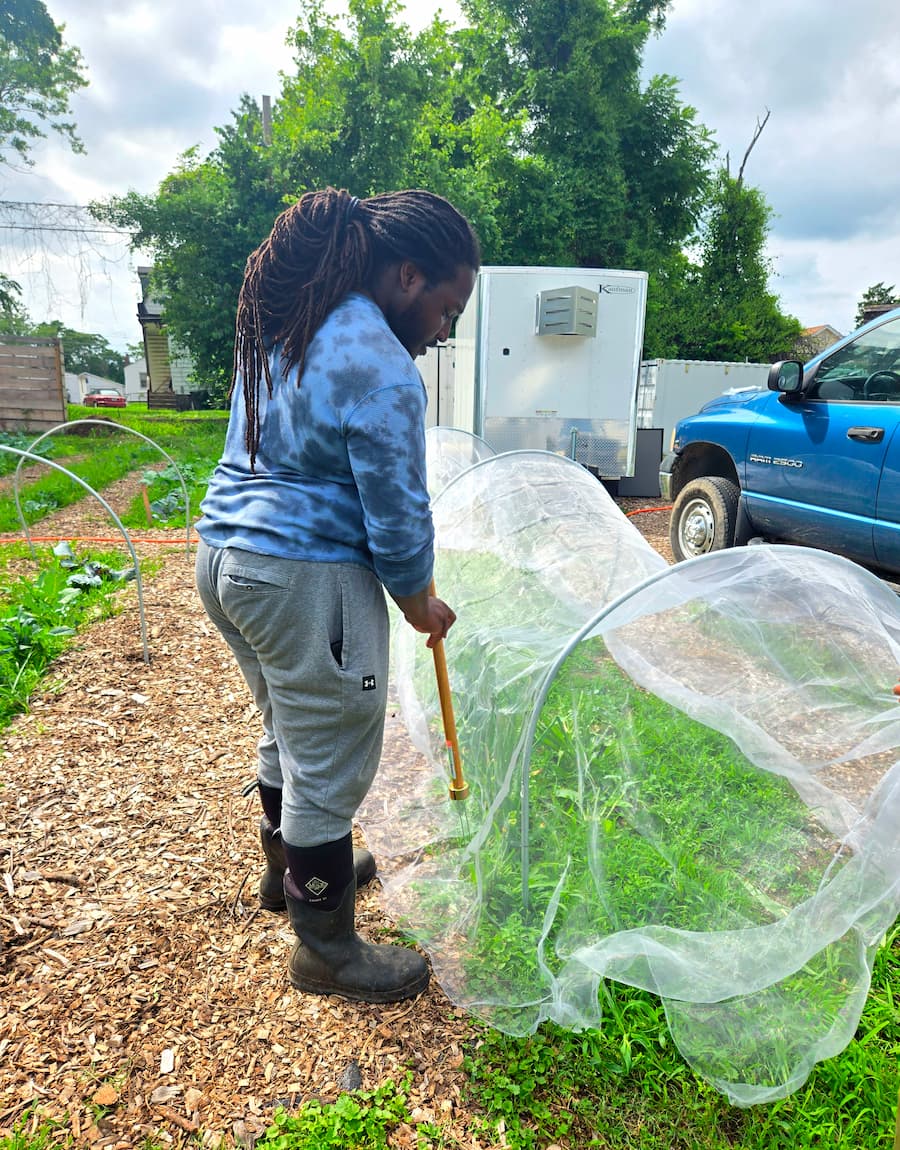Extending the Harvest: Fall Planting and Soil Prep with Lincoln University
Office of Communications and Marketing
Young Hall
820 Chestnut Street
Jefferson City, MO 65101
 Kristine Howze, an ISFOP participant, prepares to transplant kale beneath a low tunnel protected by an insect net.
Kristine Howze, an ISFOP participant, prepares to transplant kale beneath a low tunnel protected by an insect net.
Fall isn’t the end of the growing season — it’s the beginning of the next one. In Missouri, planting during cooler months opens the door to fresh possibilities, from extending the harvest to preparing for an early start in spring. With guidance from Lincoln University’s Innovative Small Farmers Outreach Program (ISFOP), people are finding that fall planting is less about endings and more about opportunity.
“Greens and roots grow best this time of year because they can handle a light frost, and the cold even makes them taste sweeter,” says Mary Keeter, ISFOP farm outreach worker.
Cold-hardy vegetables, including beets, turnips and carrots, can be planted in late summer to early fall. Leafy greens such as kale, collards, spinach, lettuce, mustard greens, Swiss chard and arugula also thrive when planted during this time. Garlic and strawberries should be planted in the fall before the ground freezes, so they can take root and be ready to grow again in spring. Warm-season crops like tomatoes and peppers, however, die back at the first freeze.
Be sure to check a reliable planting calendar for your region to find the best times to plant, as dates can vary depending on whether you are starting from seed or using transplants, Keeter advises.
 Tony White, an ISFOP participant working with farm outreach worker Mary Keeter, crimps the end of a low tunnel hoop with a vise to prepare it for installation.
Tony White, an ISFOP participant working with farm outreach worker Mary Keeter, crimps the end of a low tunnel hoop with a vise to prepare it for installation.
With the help of low tunnels or row covers — simple protective structures that retain warmth — farmers and gardeners can extend the growing season well into late fall and even winter. This approach offers more weeks of fresh harvests and extra income at markets when other produce is scarce. Keeter recently put this knowledge into practice by working with community member Kristine Howze to set up a low tunnel for kale.
“So often in Missouri, you get that one cold night and then it’s warm again,” Keeter explains. “Covering those plants, even for a night, can save them — and that can mean a farmer still has something to deliver the next week.”
Not only will Howze have a longer growing season this fall, she will also have a head start in the spring. Under a low tunnel, crops like kale — along with other cold-hardy vegetables such as collards, spinach, carrots and beets — survive the cold months, holding their size until growth picks up again in spring.
“She’s going to be able to harvest that kale about six weeks earlier,” Keeter says. “If we started that kale in the spring, she wouldn’t have any for sale until mid-April.”
 Eric Williams, an ISFOP participant, uses a magnetic staple setter to secure an insect net without needing to bend down.
Eric Williams, an ISFOP participant, uses a magnetic staple setter to secure an insect net without needing to bend down.
For those who don’t plant in the fall, or once fall crops are finished, the season is still a good time to prepare garden areas for spring. Keeter recommends removing any diseased plants, like tomatoes, instead of composting them to prevent problems the following year. Gardeners can add cover crops to restore nutrients or simply protect the soil by raking in fallen leaves or spreading compostable straw. These natural mulches allow the ground to rest and rebuild over the winter, leaving it healthier and ready to support strong growth when the weather warms.
“You don’t want to be out there in the spring trying to clean up beds — you want to be planting. Fall is the time to get your garden ready so it can work for you all winter,” Keeter says.
Lincoln University’s Innovative Small Farmers Outreach Program serves small farmers across Missouri through a network of outreach workers stationed in different regions of the state. These specialists provide hands-on training, technical support and connections to resources tailored to local needs. For more information or to connect with an outreach worker in your area, contact program director Dr. Mark Lucas at LucasM@LincolnU.edu.
